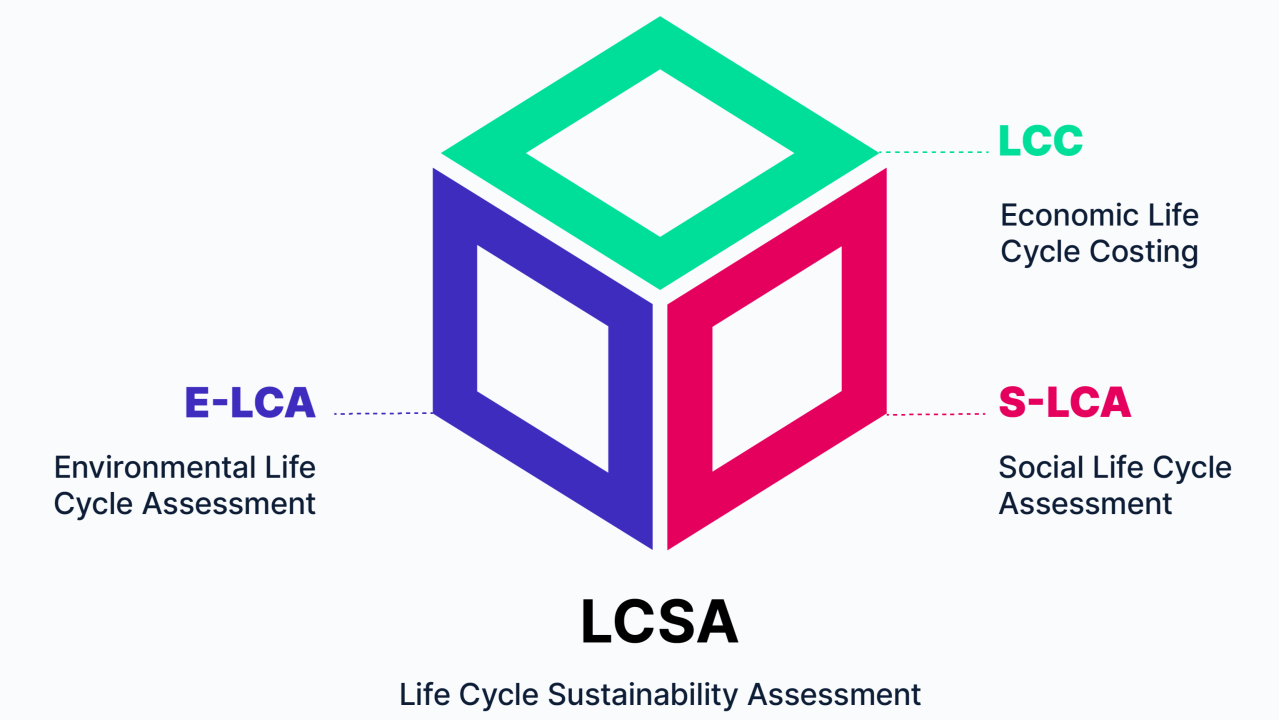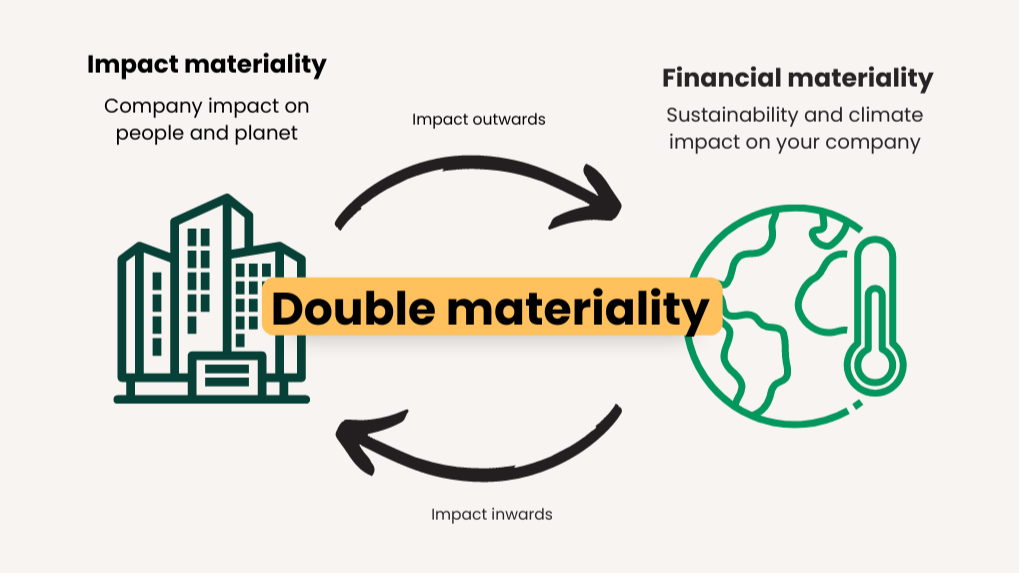As businesses and governments seek to integrate sustainability into their operations, Life Cycle Sustainability Assessment (LCSA) has emerged as a vital tool for evaluating the comprehensive impact of products and processes. This approach goes beyond traditional environmental assessments by integrating social and economic dimensions, ensuring a holistic evaluation of sustainability.
What is LCSA?
At its core, LCSA seeks to evaluate the full spectrum of a product’s impact across its entire lifecycle from raw material extraction to disposal considering three critical dimensions of sustainability environmental, economic, and social. This broader framework allows for a comprehensive analysis that accounts different impact areas and helps decision makers avoid shifting negative impacts from one area to another.
The formula typically used to describe LCSA is,
LCSA = E-LCA + S-LCA + LCC
This triple approach ensures that all aspects of sustainability are considered when evaluating a product, service, or system.
The Importance of LCSA in Sustainability
Incorporating LCSA into business strategies is essential for companies aiming to address all aspects of sustainability. Traditional assessments may focus solely on environmental impacts, overlooking the economic and social dimensions. However, by integrating E-LCA, LCC, and S-LCA, businesses can make more informed decisions that balance environmental protection, economic performance, and social responsibility.
LCSA helps organizations identify sustainability hotspots across all lifecycle stages, prioritize areas for improvement, and avoid trade offs that might harm one aspect of sustainability while benefiting another. This holistic approach is particularly valuable for businesses seeking to communicate their sustainability efforts transparently and meet the growing demands of consumers, investors, and regulators for more responsible production and consumption practices.
Challenges in Implementing LCSA
Despite its benefits, implementing LCSA presents certain challenges. One significant obstacle is the lack of standardized guidelines across industries, making it difficult to compare results between different assessments. Additionally, measuring social impacts (S-LCA) remains a complex and evolving field, often requiring qualitative data that can be difficult to quantify.
Another challenge is integrating multi criteria decision making into LCSA, as businesses must weigh environmental, economic, and social impacts simultaneously. This complexity can make LCSA a resource intensive process, requiring expertise in various fields and access to reliable data.
The Future of LCSA
As the sustainability landscape continues to evolve, LCSA will play an increasingly important role in helping companies and policymakers make balanced, informed decisions. The push for more sustainable products, services, and systems will drive the adoption of LCSA methodologies across various industries, leading to improved standardization and more effective assessments. By considering environmental, economic, and social dimensions, LCSA provides the insights necessary for businesses to make responsible decisions that contribute to a more sustainable future.





While larger corporations often have complex data security systems in place, small businesses can also fall victim to a cyber attack if they do not take steps to protect themselves